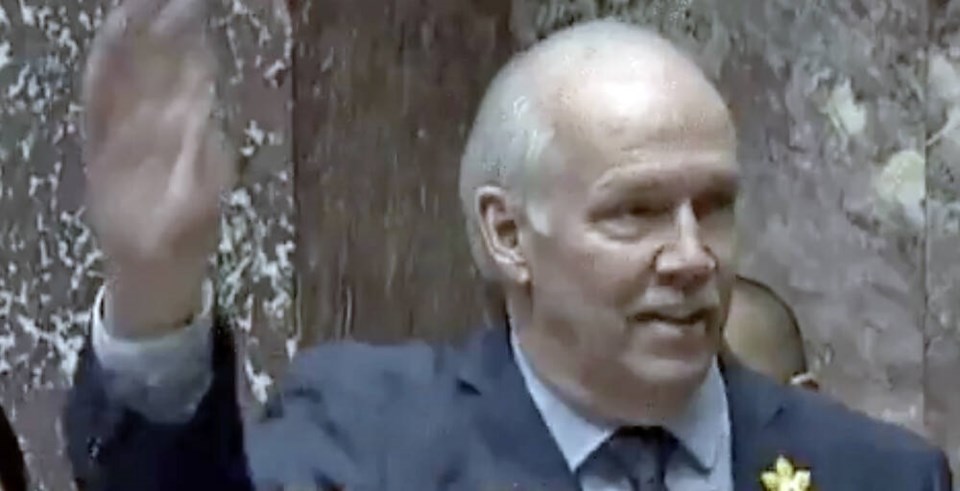Can we actually improve the B.C. legislature’s hyper-partisan — and hyper-dysfunctional — question period?
We’re set to find out on Tuesday, as the fall session of the legislature begins with some of the most significant reforms to question period in recent memory.
The leaders of B.C.’s four political parties have voluntarily agreed to new time limits, reducing heckling, speaking orders and performance tracking.
The moves are part of an attempt to accommodate the addition of a fourth party, the B.C. Conservatives, who hit the threshold of official party status on Sept. 13 after Abbotsford South MLA Bruce Banman crossed the floor from BC United to join BC Conservative leader John Rustad.
The 30-minute daily question period has, until now, had few rules.
It’s currently a mess of over-the-top outrageous accusations masquerading as questions, and an insultingly large amount of misleading partisan propaganda as answers. Many minutes are wasted daily by screaming, desk-thumping, jeering and other behaviour that wouldn’t be tolerated in a kindergarten class.
Starting Tuesday, politicians have agreed to try and keep their questions and answers to 45 seconds each.
The opposition parties have agreed to divide up their time based on the proportionality of their seats, giving the BC Greens and Conservatives each one question per day.
Heckling and desk thumping is being strongly discouraged by party leaders, in the interest of saving time.
And the Speaker is going to keep track of it all, reporting down to the second whether the new rules were followed at the end of the first week.
In a best-case scenario, all of this leads to opposition parties that dial down the rhetoric to deliver sharper questions, met half-way by a government willing to lower the spin to provide more honest answers. Maybe, as an added bonus, it will be quieter without all the shouting.
Will any of this actually work?
Politicians I spoke to say they are going to give it an honest, good-faith effort for the first week, and see how it goes. Premier David Eby is on board.
It will certainly be easier for the opposition BC United, Green and Conservative MLAs, who can read questions they’ve prepared and timed under 45 seconds.
NDP ministers will have to deliver shorter answers on the fly. There’s no 45-second countdown clock in the chamber, meaning ministers will have to both improvise and curtail their responses at the same time.
You could cut off the microphones and switch away the Hansard cameras once an MLA exceeds 45 seconds, as is done in the federal House of Commons with its 35-second limit.
But Speaker Raj Chouhan has so far not been empowered to do so by MLAs.
“It would not be appropriate for the Speaker to implement and enforce time limits during Question Period or to introduce new practices without a formal change in rules or confirmed agreement amongst the House Leaders,” Chouham recently wrote to party house leaders.
There’s also mild concern that the 45-second time limit could reduce serious topics, like the overdose crisis, into a volley of brief soundbites hurled back and forth between opposition and government. Though, to be fair, that’s pretty much what already happens, anyway.
Party leaders have had initial discussions about being flexible with the time limits if the topic is serious and demands more discussion.
Even attempting these reforms is very unusual for the B.C. legislature.
Question period was created in 1973 by premier David Barrett, and expanded to 30 minutes in length in 2005 by premier Gordon Campbell. Little has changed since. But maybe now is the time to try.
After all, the fall session of the B.C. legislature will be the first time since 1952 there are four officially-recognized parties on the floor of the house. The times are changing. The hope is, so will the way politicians ask and answer questions.
Rob Shaw has spent more than 15 years covering B.C. politics, now reporting for CHEK News and writing for Glacier Media. He is the co-author of the national bestselling book A Matter of Confidence, host of the weekly podcast Political Capital, and a regular guest on CBC Radio. rob@robshawnews.com




